Bollywood
Review of The World Is Family: Anand Patwardhan’s Outstanding Documentary Brings History Home
Published
10 months agoon
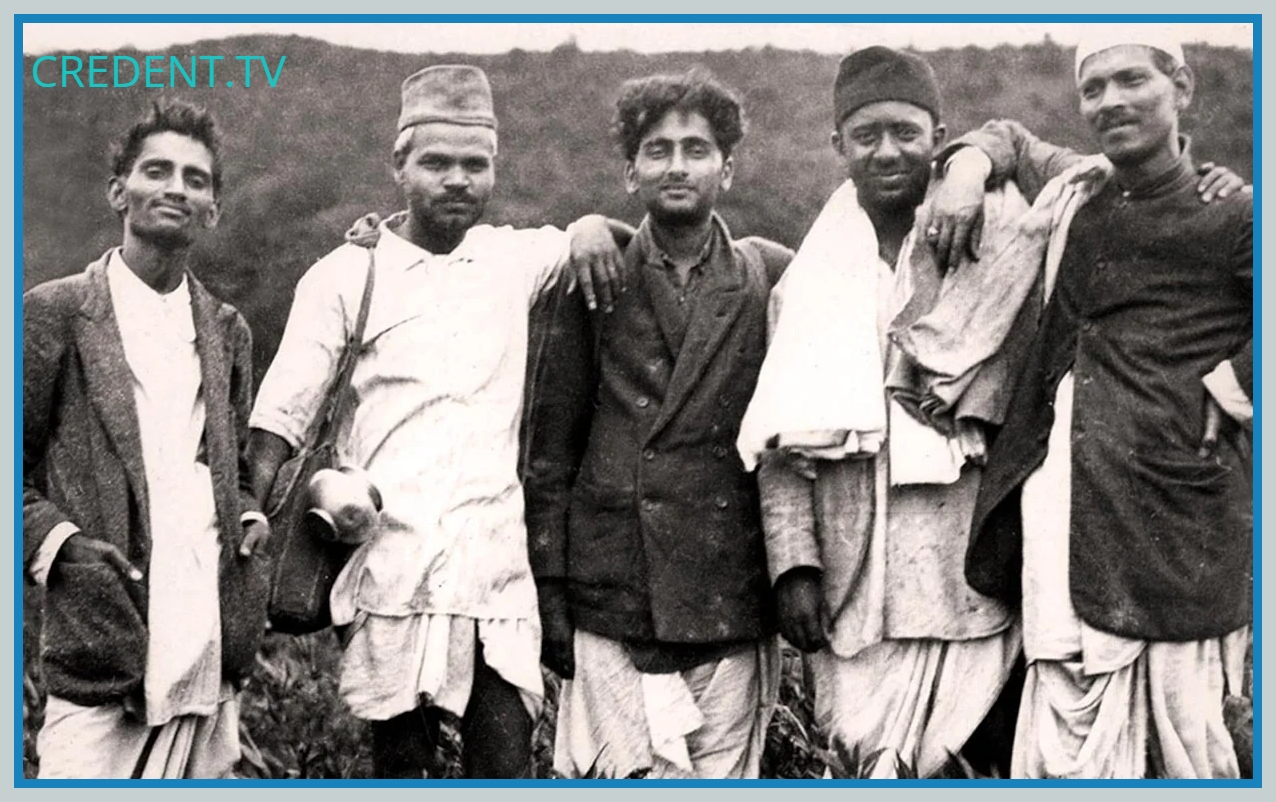
Review of The World Is Family: This time, Patwardhan turns the camera inside, examining significant facets of India’s freedom movement and its aftermath while focusing on his parents, uncles, and their friends and connections
The World Is Family (Vasudhaiva Kutumbakam), a deeply personal and masterful cinematic essay that pays homage to the principles and ideologies that his family bequeathed to him, is a deeply personal and masterful cinematic essay that pays homage to the principles and ideologies that his family bequeathed to him.
Patwardhan, known for his incisive and sustained examinations of contemporary India’s most contentious sociopolitical questions, turns the camera inwards this time, profiling his parents, uncles, and their friends and associates while delving into crucial aspects of India’s freedom struggle and its aftermath.
The World Is Family, which premiered on Sunday at the 48th Toronto International Film Festival, combines the intimate and universal, the specific and the general, to create an acute portrait of a turbulent period in history seen through the lens of one extended family with roots in Ahmednagar, Maharashtra and Hyderabad, Sindh (now in Pakistan).
The film chronicles both the turbulent circumstances that led to India’s independence and the closeness of familial bonds. Even the filmmaker’s grandmother actively participated in the struggle against the British, as did his parents, uncles, aunts, and other family members. Balu Patwardhan, his father, makes fun of the fact that “I am the only one (in the family) who never went to jail.”
Rau and Achyut, Patwardhan’s two oldest paternal uncles, joined the independence cause when Mahatma Gandhi began the Salt Satyagraha in 1930. However, the two Ahmednagar siblings followed opposite roads to the same end: Rau accepted Gandhi’s nonviolent ways and spent many years in prison; Achyut operated covertly under many aliases and turned to revolutionary tactics to resist the British authorities.
After India gained its independence, the two men left politics and history. The World Is Family highlights the achievements of a few other lesser-known participants in the Indian freedom struggle by telling the tale of Balu Patwardhan and his well-known ceramist-wife Nirmala mostly through their own voices.
Bhai Pratap Dialdas, a merchant and philanthropist who lived in Hyderabad, Sindh (now in Pakistan), frequently entertained prominent figures in India’s independence struggle in addition to providing them with financial assistance and other forms of support. He is Patwardhan’s maternal grandfather.
Allah Baksh, the chief minister of Sindh, who vehemently opposed the Partition, returned his knighthood, lost his position, was assassinated in broad daylight not long after, and was consigned to a footnote in history, was a friend of Pratap Dialdas’. When Patwardhan’s mother brings up the name, the director becomes intrigued by the lost character.
Read also:-Neeraj Chopra comes in second place in the Diamond League championship
The movie features memories of Mahatma Gandhi, Jawaharlal Nehru, B.R. Ambedkar, and other liberation warriors from the perspectives of Patwardhan’s mother, father, uncles, and friends, who regularly appear on screen, especially in sequences with his parents.
The 96-minute documentary, which Patwardhan also produced, directed, shot, and edited, addresses the same anti-war and anti-fundamentalist issues as all of his previous works. The World Is Family references to the atrocities of the Partition riots and recalls the sane voices that opposed the proposal to divide the subcontinent into two countries.
The World Is Family also highlights the strength of the shared cultural and social legacy of the subcontinent to transcend divisions of nationality, religion, caste, and gender and act as a bulwark against divisive politics intended to take advantage of the people’s vulnerabilities.
Anecdotes from Patwardhan’s candid conversations and interviews with family members and friends in Mumbai and Karachi, as well as an especially instructive encounter with a group of young boys in Ahmednagar following a communal clash and a Q&A session with schoolchildren following a screening of his anti-nuclear arms race film War and Peace, are woven together in an exceptionally well-edited film.
The World Is Family lists the ideals that motivated his family to answer Mahatma Gandhi’s call for action through the use of archive images, newsreel footage, home movies, and newspaper headlines layered with a simple, to-the-point narration.
The movie is filled with family and friend memories, including a couple that the daughter of Feroz Nana—a close friend of his maternal grandfather—shared in 2003 in Karachi. In addition to visiting Hyderabad to view his mother’s childhood home, Maitri House, Patwardhan travels to the city as part of a people-to-people peace effort 60 years after his mother first met Balu Patwardhan there. The structure is currently a hospital. The director tells the son of the head surgeon that it is at least “something useful”.
Before starting this movie, Patwardhan had to get over his own reluctance to film. He claims that only after his father’s speech problem was caused by encephalitis and a heart operation did he lose his “reticence”. The last ten or so years of his life are followed in the movie. He still has his soul. He makes the movie more interesting by being a clever and funny (often self-deprecating) raconteur.
The remarks of his wife, a vivacious woman who studied at Kala Bhavan in Rabindranath Tagore’s Santiniketan under the guidance of, among others, Nandalal Bose, also add humour to the mix. She later became one of India’s most renowned potters, travelling the world and collaborating with the genre’s top practitioners.
The World Is Family’s opening scene was created in 1999. Balu and Nirmala, two elderly people, are out for a morning stroll. According to Patwardhan’s voice, his mother, who is 12 years his father’s junior, forced her spouse to swear he wouldn’t pass away before him.
They observe a laughing club session while perched on a park bench. Balu responds to his son’s query by saying, “I have laughed my way through life. I don’t need to work on my laughter. The movie has a subtle sense of humour throughout. It results from conversations between
Patwardhan’s parents are also evident from their sporadic jabs at the director.
The bond that keeps them together as a family of freethinking individuals who thrive on agreeing to disagree stands out in this piercingly no-limit, warm portrait of a son’s relationship with his parents. They play cards, argue, poke fun at each other, and share lighter moments amid the chores of an ageing couple’s life.
Anand Patwardhan is the director.
Credent TV Editorial Team

You may like
-
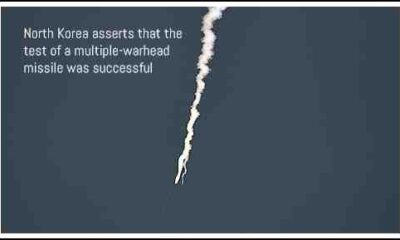

North Korea asserts that the test of a multiple-warhead missile was successful
-
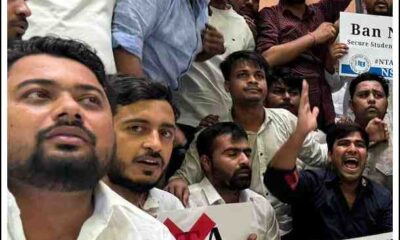

The Student Wing of Congress storms the Exam Body NTA office and locks it from within
-
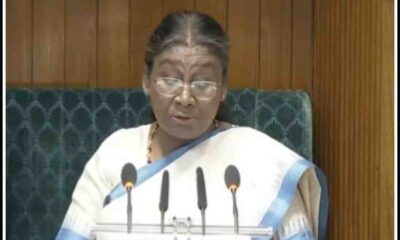

“During President Murmu’s address to Parliament, PM Modi was shown 73 times, and LoP Rahul Gandhi was shown six times”: Congress
-


NASA contracts Elon Musk’s SpaceX to deorbit the International Space Station in 2023.
-
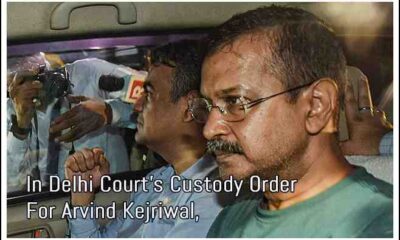

A Caution For The CBI In The Delhi Court’s Arvind Kejriwal Custody Order
-
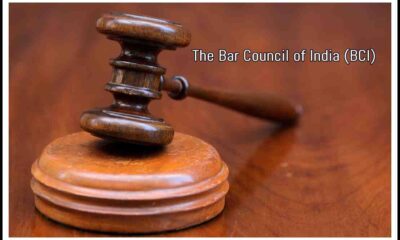

Bar Council of India requests that bar associations abstain from demonstrating in opposition to new criminal laws